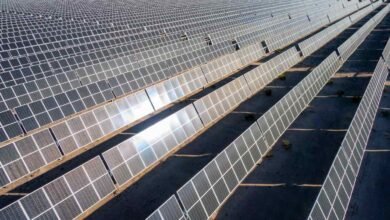Meta’s 5GW AI Data Center: Zuckerberg Reveals Ambitious Plan

▼ Summary
– Meta is building a massive AI data center called Hyperion in Louisiana, expected to provide 5 GW of computational power to support its AI lab.
– The project is part of Meta’s strategy to compete with OpenAI and Google by securing both top talent and significant computational resources.
– Meta also plans to launch a 1 GW super cluster named Prometheus in Ohio by 2026, further boosting its AI infrastructure.
– The expansion of AI data centers, including Meta’s, raises concerns about energy and water consumption, with reports of local shortages in some areas.
– The U.S. government supports AI infrastructure growth, with projections that data centers could consume 20% of the nation’s energy by 2030.
Meta is making a massive push into artificial intelligence infrastructure with plans for two cutting-edge data centers that will reshape the AI landscape. The company’s ambitious Hyperion project, revealed by CEO Mark Zuckerberg, will eventually deliver five gigawatts of computational power – enough to support advanced AI research and development. This facility, reportedly located in Louisiana’s Richland Parish, represents a dramatic expansion from Meta’s original two-gigawatt blueprint announced earlier this year.
The social media giant isn’t stopping there. A second one-gigawatt super cluster called Prometheus is scheduled to launch in Ohio by 2026, positioning Meta among the first tech firms to operate AI data centers at this unprecedented scale. These facilities combined will consume energy equivalent to powering millions of American homes, highlighting both the enormous potential and environmental impact of large-scale AI infrastructure.
Industry analysts note this aggressive expansion signals Meta’s determination to compete directly with AI leaders like OpenAI and Google DeepMind. The company has already made waves by recruiting top AI talent, including former Scale AI CEO Alexandr Wang. Now, with these massive computing resources, Meta aims to attract even more researchers drawn to cutting-edge infrastructure.
However, the rapid growth of AI data centers raises significant concerns. Local communities near these facilities often face water shortages and power grid strain, as seen in Georgia where Meta’s operations reportedly left some residents without running water. Similar challenges are emerging nationwide, with AI firm CoreWeave’s Texas expansion projected to double a nearby city’s electricity demand.
The federal government appears supportive of this AI infrastructure boom, with Energy Department officials publicly advocating for accelerated energy production to meet growing demands. Current projections suggest data centers could consume 20% of America’s electricity by 2030, up from just 2.5% in 2022 – a staggering increase that underscores both the promise and challenges of the AI revolution.
Other major players are making similar investments, including OpenAI’s Stargate collaboration with Oracle and xAI’s Colossus supercomputer initiative. As the race for AI supremacy intensifies, the competition now extends beyond algorithms and talent to include who can build the most powerful computing infrastructure – with Meta clearly determined to lead the pack.
(Source: TechCrunch)



